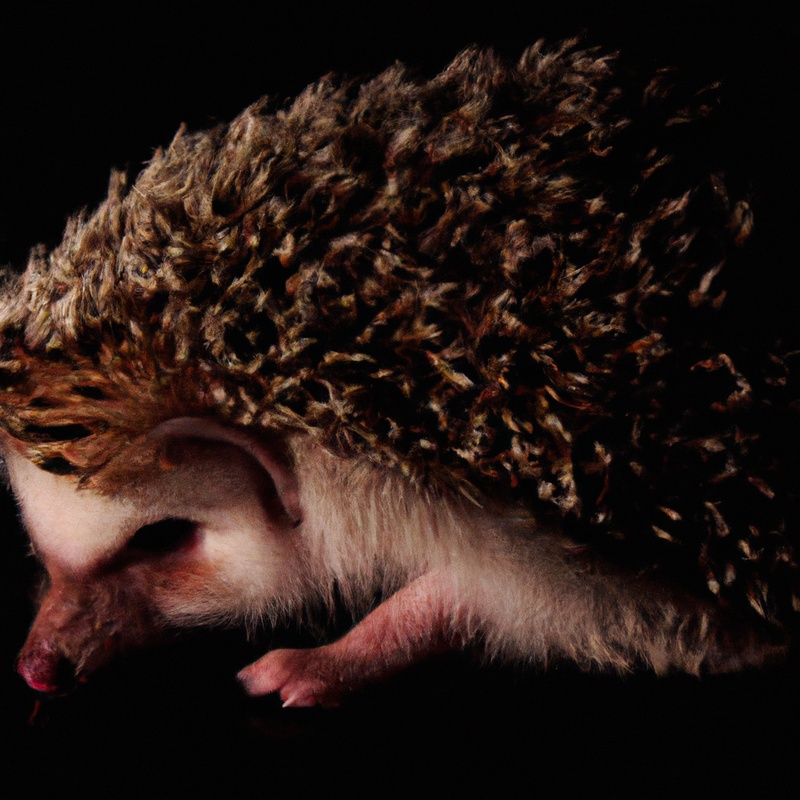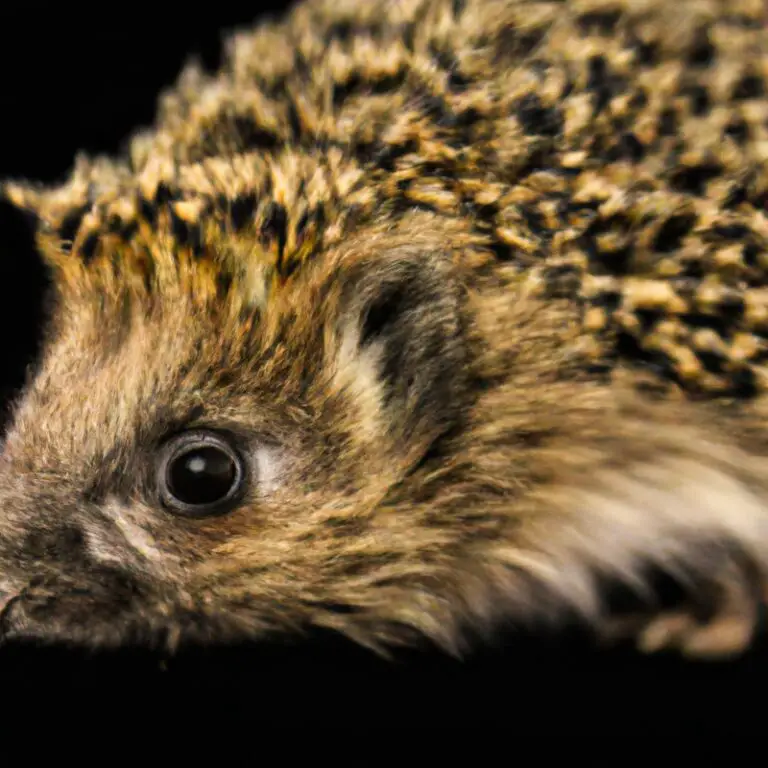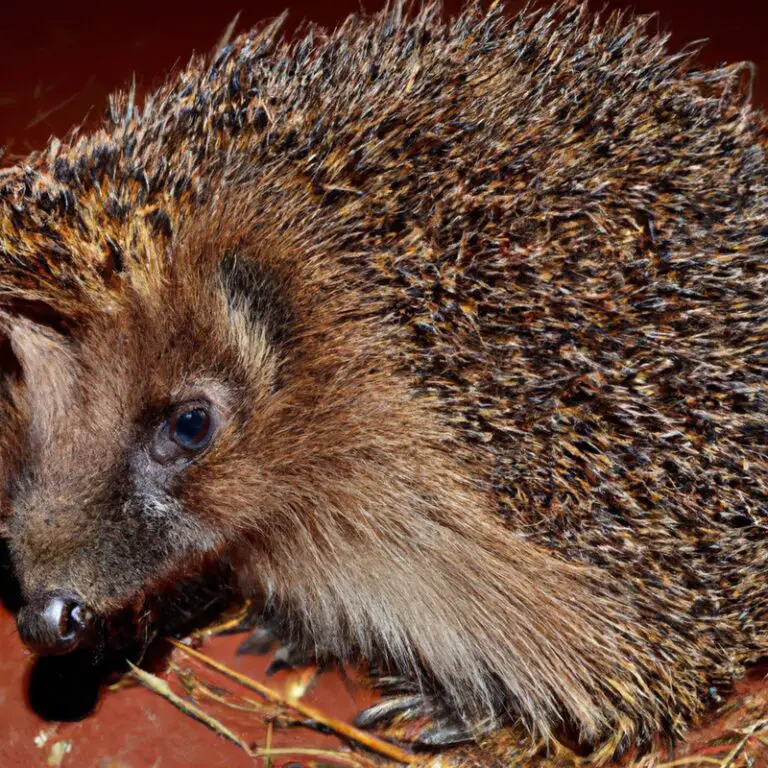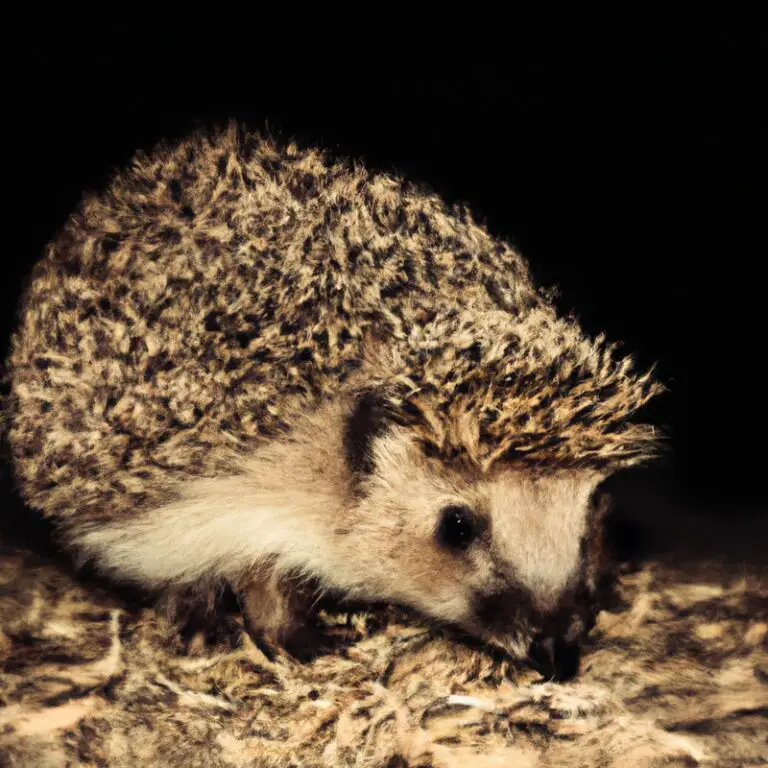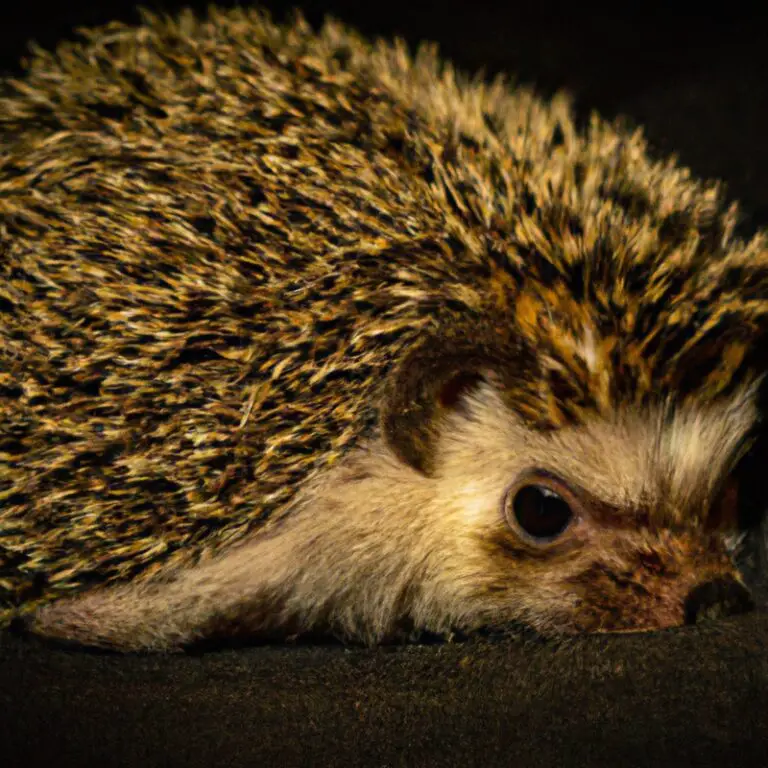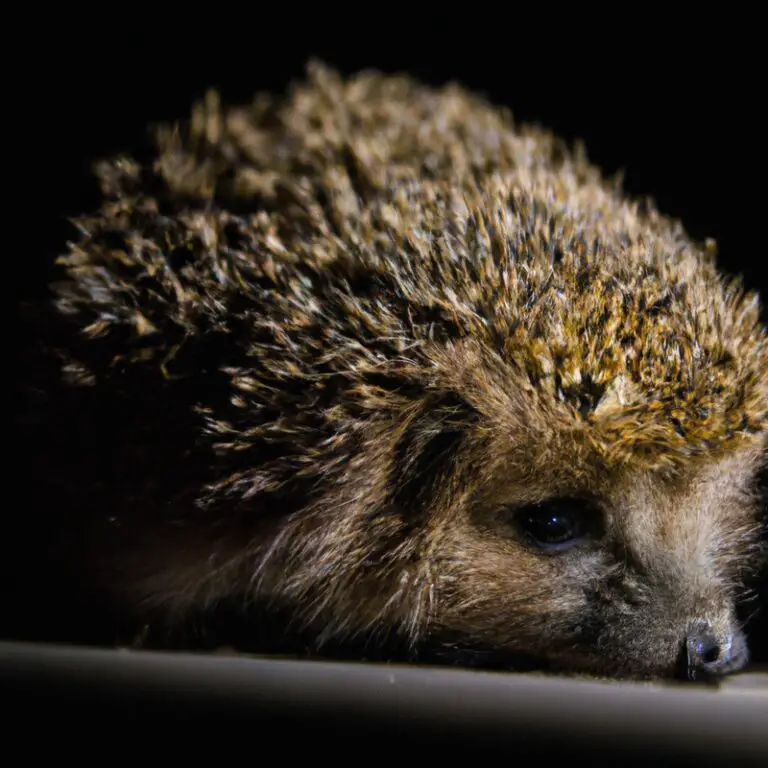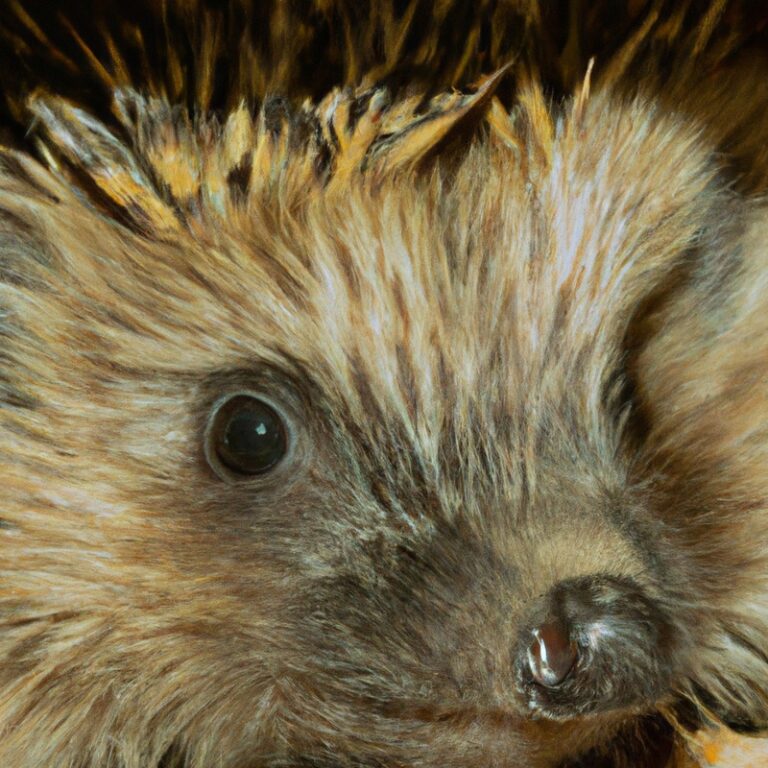What Is The Role Of Hedgehogs In Controlling Mosquito Populations?
Key Takeaways:
- Hedgehogs can help control mosquito populations by consuming the insects and their larvae.
- Their diet and foraging behavior make hedgehogs effective natural predators of mosquitoes.
- Increasing hedgehog populations could have a positive impact on mosquito control efforts.
- Conservation efforts should focus on preserving hedgehog habitats to maintain their role in mosquito population control.
Are you tired of swatting away pesky mosquitoes and dealing with itchy bites all summer long? Well, what if I told you that there’s a natural solution right in your own backyard?
Enter the humble hedgehog, an unlikely hero in the battle against mosquito populations.
These adorable little creatures not only make great pets but also serve as efficient and voracious mosquito predators. With their incredible feeding habits and hunting techniques, hedgehogs play a vital role in keeping mosquito populations in check.
In this article, we’ll explore the fascinating world of hedgehogs and delve into their superpower of controlling mosquitoes.
Say goodbye to those annoying bloodsuckers and say hello to your new hedgehog ally!
| Role of Hedgehogs in Controlling Mosquito Populations | |
| Role | Hedgehogs |
| Mosquito Control | Hedgehogs eat mosquitoes and their larvae, helping to reduce their population. |
| Natural Predators | Hedgehogs are natural predators of mosquitoes and can significantly impact their numbers. |
| Nocturnal Hunting | Hedgehogs are active at night when mosquitoes are most active, increasing their hunting efficiency. |
| Alternative Food Sources | When mosquitoes are scarce, hedgehogs can also feed on other insects, maintaining a balanced ecosystem. |
| Ecological Balance | Hedgehogs play a crucial role in maintaining the ecological balance by controlling mosquito populations. |
Hedgehogs as natural predators
Hedgehogs are natural predators that play a crucial role in controlling insect populations.
Hedgehogs’ diet and feeding habits
Hedgehogs have a varied diet consisting of insects, worms, snails, and slugs. They are skilled foragers and use their sharp sense of smell to locate their prey.
At night, hedgehogs venture out in search of food, using their long tongues to extract food from crevices and cracks.
They are efficient predators of insects, making them natural controllers of mosquito populations. In addition to their insectivorous diet, hedgehogs also consume some fruits and vegetables, but their main source of food is small invertebrates.
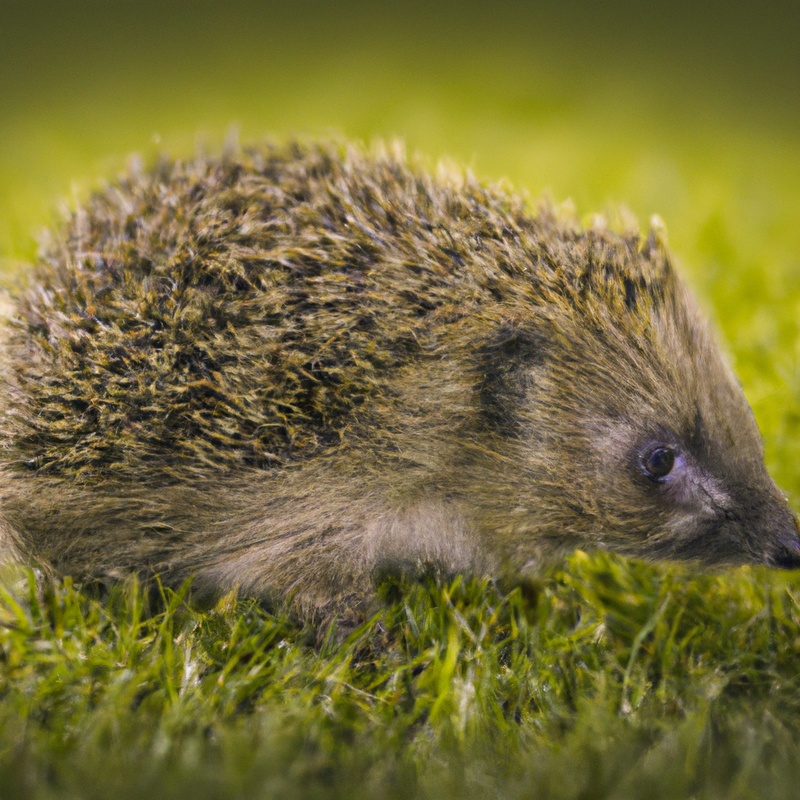
Role of hedgehogs in controlling insect populations
Hedgehogs play an important role in controlling insect populations. Their natural diet includes insects like beetles, slugs, and caterpillars, which are common garden pests.
By consuming these insects, hedgehogs help to reduce their numbers and prevent damage to plants.
This makes hedgehogs valuable allies in natural pest control. Additionally, hedgehogs also eat mosquitoes and other flying insects, which can help to control their populations in certain areas.
So, if you have a hedgehog in your garden, it’s good news for keeping those pesky insects in check.
They are truly nature’s little pest controllers!
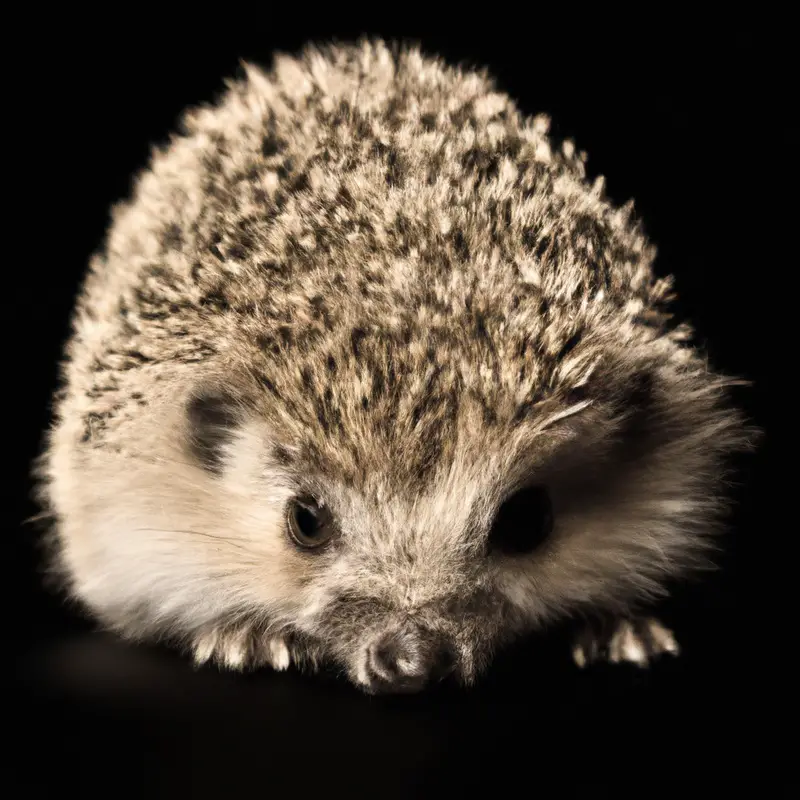
Hedgehogs’ ability to control mosquito populations
Hedgehogs are natural predators with the ability to control mosquito populations.
They prey on mosquitoes and their larvae, helping to reduce their numbers.
Hedgehogs have a varied diet that includes insects, making them an effective and valuable ally in mosquito control.
Their foraging behavior and appetite for insects contribute to a balanced ecosystem, keeping mosquito populations in check.
So, having hedgehogs around can be beneficial in minimizing the nuisance and potential health risks posed by mosquitoes.
Hedgehogs as agents of mosquito control
Hedgehogs play a significant role in controlling mosquito populations.
Hedgehogs’ feeding preferences and impact on mosquitoes
Hedgehogs’ feeding preferences and impact on mosquitoes are interesting topics to explore. These adorable creatures have a natural appetite for insects, including mosquitoes.
When given the opportunity, hedgehogs will happily snack on mosquitoes and their larvae.
They play a role in controlling mosquito populations by reducing their numbers. However, it’s important to note that hedgehogs alone cannot completely eradicate mosquito populations.
They are just one piece of the puzzle in natural mosquito control.
Mosquito control methods should incorporate multiple strategies for optimal effectiveness, such as eliminating breeding sites and using mosquito repellents.
Hedgehogs’ foraging behavior and hunting techniques
Hedgehogs are skilled hunters with unique foraging behaviors.
They use their acute sense of smell to locate insects, small invertebrates, and even small vertebrates.
Once they detect their prey, hedgehogs employ a combination of rooting and digging to capture their meals.
They use their strong snouts to dig through leaf litter and soil, uncovering hidden food sources.
Additionally, hedgehogs may employ a pounce-and-roll technique to stun or kill prey, especially when hunting larger insects.
These foraging behaviors and hunting techniques are essential for hedgehogs to find and secure their meals in their natural habitats.
Benefits of hedgehogs in reducing mosquito-borne diseases
Hedgehogs play a vital role in reducing mosquito-borne diseases. Here’s why:
- Hedgehogs are natural predators of mosquitoes and their larvae.
- By eating mosquitoes, hedgehogs help control their population, minimizing the spread of diseases like Zika and dengue.
- Hedgehogs also consume other insects that may act as disease carriers, further contributing to disease prevention.
- Their presence in ecosystems serves as a natural form of pest control, reducing the need for chemical sprays.
- Encouraging hedgehog habitats can be an effective, environmentally-friendly strategy in combating mosquito-borne diseases.
Studies and research on hedgehogs’ impact on mosquitoes
Studies and research have investigated the impact of hedgehogs on mosquito populations.
Scientific investigations on hedgehogs’ role in mosquito control
Scientific investigations have shown that hedgehogs can play a role in controlling mosquito populations. Researchers have found that hedgehogs consume significant numbers of mosquitoes, their larvae, and other insects that serve as mosquito food sources.
This natural predation can help reduce the number of mosquitoes in an area.
While hedgehogs alone may not completely eliminate mosquito populations, their presence can contribute to overall mosquito control efforts in a region.
Field studies and observations on hedgehogs’ feeding behavior
Field studies and observations have shown that hedgehogs play an important role in controlling mosquito populations through their feeding behavior.
Hedgehogs are opportunistic feeders and will consume various insects, including mosquitoes, as a part of their diet.
Their diet helps reduce the number of mosquitoes, contributing to the natural control of mosquito populations.
These studies provide valuable information on the beneficial impact of hedgehogs in maintaining a balance in the ecosystem.
Data and statistics on mosquito populations in hedgehog-inhabited areas
Mosquito populations in hedgehog-inhabited areas tend to be lower compared to areas without hedgehogs.
Studies have shown that hedgehogs consume significant numbers of mosquitoes and their larvae, helping to control their populations naturally.
For example, research conducted in certain regions has found up to an 80% reduction in mosquito abundance where hedgehogs are present.
Additionally, hedgehogs’ habit of foraging in grassy areas also disrupts mosquito breeding grounds, further contributing to a decline in populations.
Ecological considerations and biodiversity
The role of hedgehogs in maintaining ecological balance and preserving biodiversity is crucial for sustainable mosquito control.
Role of hedgehogs in maintaining ecological balance
Hedgehogs play a vital role in maintaining ecological balance. They are natural predators of insects, including mosquitoes.
By feeding on mosquitoes and other insects, hedgehogs help to control their populations and prevent them from becoming overwhelming.
This contributes to a healthier ecosystem by reducing the risk of disease transmission and maintaining biodiversity. Additionally, hedgehogs also aid in seed dispersal by consuming fruits and spreading the seeds in their droppings.
In this way, they contribute to the growth and regeneration of plant species, further supporting the ecological balance.
Impact of hedgehogs on other insect species and food chains
Hedgehogs play a significant role in maintaining the balance of insect populations and food chains. They mainly feed on insects such as beetles, slugs, snails, and spiders.
By doing so, they help control the population of these species, preventing them from reaching damaging levels.
Furthermore, hedgehogs serve as a valuable source of food for other predators, such as birds of prey and foxes, contributing to the overall biodiversity and health of ecosystems. Their presence in the environment ensures the stability of insect populations and the functioning of food chains.
Importance of preserving hedgehog habitats for sustainable mosquito control
Preserving hedgehog habitats is vital for sustainable mosquito control.
Hedgehogs are natural predators of mosquitoes and can help keep their population in check.
By preserving their habitats, we ensure that hedgehogs have a place to thrive and continue their important role in controlling mosquito populations.
This is an effective, eco-friendly way to manage mosquitoes without relying on harmful chemicals or pesticides.
By supporting hedgehog habitats, we can create a balanced and sustainable ecosystem that benefits us and the environment.
Hedgehog conservation and promotion
To protect hedgehogs and promote their well-being, various conservation efforts and initiatives are being undertaken.
Threats and challenges faced by hedgehogs
Hedgehogs face several threats and challenges in their survival. One major threat is habitat loss due to urbanization and agricultural expansion.
Deforestation and the destruction of hedgerows also affect their natural habitats.
Another challenge is road accidents, as hedgehogs often get hit by vehicles while crossing roads at night. Climate change is another concern, as it disrupts their hibernation patterns and affects their food sources.
Additionally, the use of pesticides and chemicals in gardens can be toxic to hedgehogs.
Illegal hunting and poaching pose a threat to their population as well.
Conservation efforts and initiatives for hedgehogs
Conservation efforts and initiatives for hedgehogs involve various actions aimed at protecting and enhancing their populations.
Some key strategies include:
- Creating hedgehog-friendly habitats by providing access to food, water, and shelter. This can involve leaving wild areas in gardens, creating hedgehog highways, and avoiding the use of pesticides.
- Raising awareness about hedgehog conservation through education campaigns, community involvement, and outreach programs.
- Promoting responsible pet ownership, as domestic pets can pose a threat to hedgehogs.
- Supporting research and monitoring projects to gather data on hedgehog populations and better understand their habitat requirements and threats they face.
- Collaborating with local authorities, wildlife organizations, and communities to develop policies and guidelines for hedgehog conservation.
By actively participating in these conservation efforts and initiatives, we can help protect hedgehog populations and ensure their survival for future generations.
How individuals can contribute to hedgehog conservation and support mosquito control
You can contribute to hedgehog conservation and support mosquito control in a few simple ways:
- Create a hedgehog-friendly garden: Provide hedgehogs with ample hiding places, such as log piles or dense shrubs. Avoid using pesticides or chemicals, as they can harm hedgehogs and their food sources.
- Install a hedgehog house: Provide a warm and safe shelter for hedgehogs by setting up a hedgehog house in your garden.
- Leave out food and water: Leave out a shallow dish of water and a small bowl of cat or dog food (not fish-based for hedgehogs to eat.
- Support local wildlife organizations: Consider donating to or volunteering with local organizations that work towards hedgehog conservation and mosquito control efforts.
Remember, even small actions can make a big difference in protecting hedgehogs and promoting a balanced ecosystem.
Frequently Asked Questions (FAQs)
Can hedgehogs completely eradicate mosquito populations?
Hedgehogs cannot completely eradicate mosquito populations.
While hedgehogs do eat insects, including mosquitoes, they cannot consume enough mosquitoes to eliminate an entire population.
Mosquitoes breed and multiply at a rapid rate, making it difficult for any predator, including hedgehogs, to keep up.
Additionally, hedgehogs have a varied diet and rely on a range of food sources.
So while they may help reduce mosquito numbers, they cannot eradicate them completely.
Do hedgehogs have any negative effects on the ecosystem?
Hedgehogs do not have any negative effects on the ecosystem. In fact, they play a beneficial role in controlling pest populations, particularly mosquitoes.
Hedgehogs feed on mosquitoes and other insects, helping to naturally regulate their numbers.
Furthermore, hedgehogs also have a positive impact on soil health by aerating it while foraging for food. Overall, hedgehogs are important contributors to maintaining a balanced ecosystem and should be protected.
How many mosquitoes can a hedgehog consume in a day?
A hedgehog can consume up to 200 mosquitoes in a single night. They have a voracious appetite for insects, including mosquitoes, which makes them effective natural pest controllers.
Hedgehogs also eat other insects like beetles, slugs, and worms, helping to keep the population of these pests in check.
So having a hedgehog in your garden can be a great way to naturally control mosquito populations.
Are hedgehogs suitable for controlling mosquitoes in all regions and climates?
No, hedgehogs are not suitable for controlling mosquitoes in all regions and climates.
While hedgehogs do eat insects, including mosquitoes, their diet varies depending on the availability of food in their habitat.
In some regions, mosquitoes may not be a significant part of their diet due to limited population or other factors.
Additionally, hedgehogs are not native to all regions, so introducing them may disrupt local ecosystems.
Other methods, such as mosquito repellents and larvae control, are more effective in preventing mosquito-borne diseases in all regions and climates.
Final Verdict
Hedgehogs play a crucial role in controlling mosquito populations through their natural predation and feeding habits. Their preference for insects, including mosquitoes, makes them effective agents in reducing mosquito numbers and minimizing the risk of mosquito-borne diseases.
Scientific studies have provided evidence of hedgehogs’ impact on mosquito control, further supporting their beneficial role in our ecosystems.
By acknowledging the ecological considerations and biodiversity implications, and by promoting hedgehog conservation efforts, we can ensure sustainable mosquito control and contribute to the preservation of these remarkable creatures.

